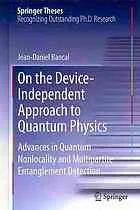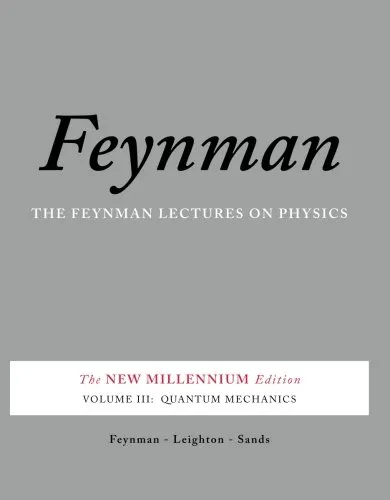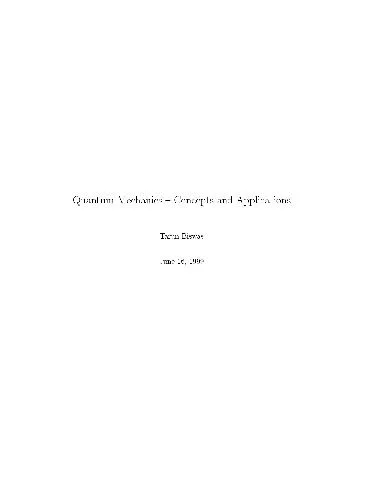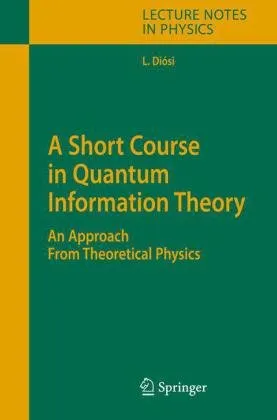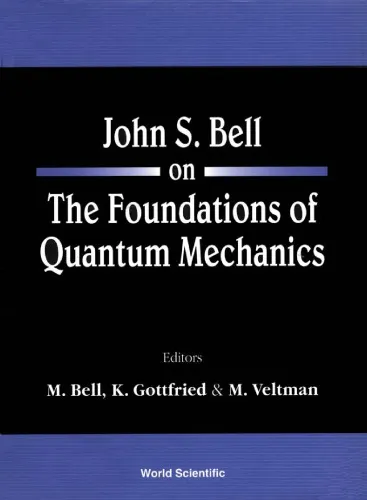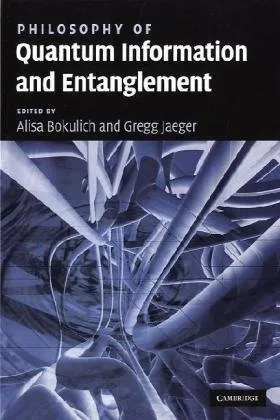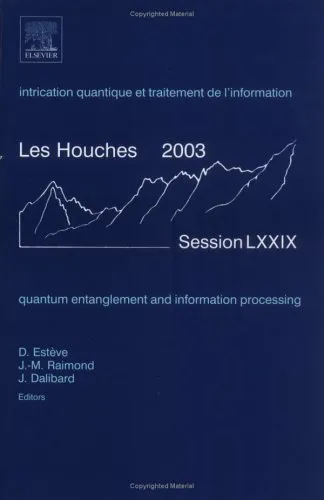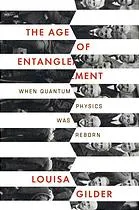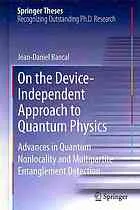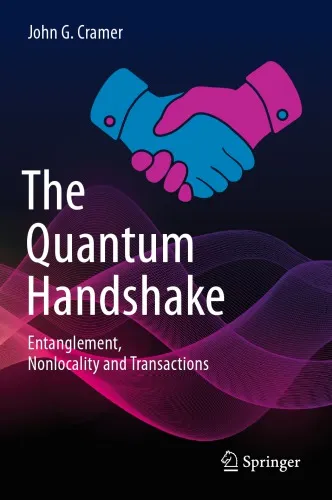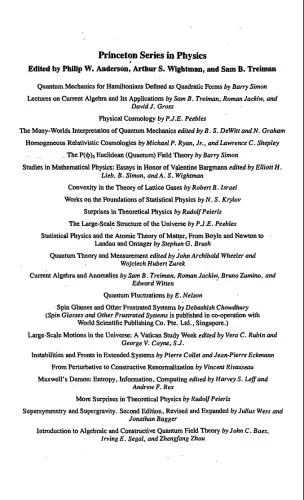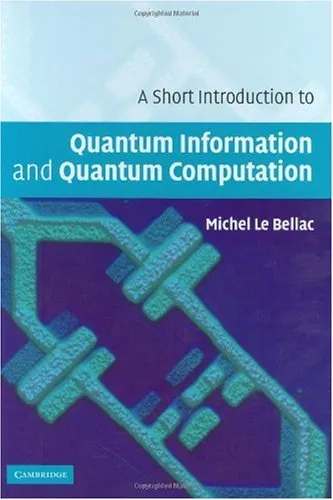On the Device-Independent Approach to Quantum Physics: Advances in Quantum Nonlocality and Multipartite Entanglement Detection Ph.D. Thesis
4.9
Reviews from our users

You Can Ask your questions from this book's AI after Login
Each download or ask from book AI costs 2 points. To earn more free points, please visit the Points Guide Page and complete some valuable actions.Related Refrences:
Introduction
The realm of quantum physics has always intrigued scientists and philosophers alike, presenting unique challenges in understanding the fabric of reality. My book, “On the Device-Independent Approach to Quantum Physics: Advances in Quantum Nonlocality and Multipartite Entanglement Detection”, delves into one of the most groundbreaking approaches in the field: the device-independent framework. This thesis explores the foundations and applications of quantum nonlocality and entanglement detection, key phenomena that define and differentiate quantum mechanics from classical physics. The work stands at the intersection of theoretical explorations and applied science, tackling questions that push the boundaries of what we understand about quantum systems, independent of the devices used for measurement.
Device-independence emerges as a robust paradigm that investigates quantum phenomena relying only on observed correlations, bypassing the need for detailed knowledge about physical implementation. This is essential for fields like quantum cryptography and quantum foundations, where reliability and trust are paramount. The thesis brings together advances in multipartite entanglement detection and a deeper understanding of nonlocal correlations, providing critical insights into quantum physics' mysteries.
Detailed Summary of the Book
This book explores the device-independent approach to quantum mechanics, offering an innovative perspective on studying quantum systems. The device-independent framework defines a methodology where conclusions are drawn solely from measurement outcomes rather than assumptions about the internal workings of physical devices.
The work begins by introducing the theoretical foundations of quantum theory and its distinction from classical physics. Fundamental concepts like nonlocality, described through Bell's theorem, and quantum entanglement, which is central to multi-party quantum systems, are explored comprehensively. These concepts are the bedrock for understanding how quantum particles can remain correlated beyond classical explanations.
The second part of the thesis focuses on multipartite entanglement, showcasing methods to detect and classify entanglement in configurations involving more than two parties. These techniques are not only mathematically rigorous but also practical for experimental applications. Various scenarios are discussed, from entangled states of three particles to large quantum networks, providing a robust framework for advancing our comprehension of complex quantum systems.
Lastly, the book delves into real-world applications of these phenomena, particularly in the realms of quantum communication and quantum information processing. Nonlocality and multipartite entanglement are revealed to be invaluable for implementing device-independent quantum cryptographic protocols, surpassing classical systems in security and efficiency. Through this journey, the book highlights the importance of understanding quantum systems from a device-independent perspective, bridging theory and practice.
Key Takeaways
- The device-independent approach revolutionizes how quantum phenomena are studied, emphasizing reliance on experimental correlations over implementation details.
- Quantum nonlocality, as described by Bell inequalities, is essential for understanding the unique properties of quantum systems.
- Multipartite entanglement detection provides tools to analyze and exploit the correlations within multi-particle quantum states.
- Theoretical advancements outlined in this book have direct applications in quantum technologies, particularly in communication and cryptography.
- Device-independence enhances trust in quantum protocols, mitigating risks arising from imperfect or tampered measurement devices.
Famous Quotes from the Book
"Nonlocality is not merely a feature of quantum mechanics; it is its essence, providing a window into the nature of reality itself."
"Device-independence represents a paradigm shift, where trust in experimental outcomes prevails over precise knowledge of the devices involved."
"The complexity and beauty of multipartite entanglement teach us that, in quantum physics, the whole is indeed greater than the sum of its parts."
Why This Book Matters
As quantum technologies advance toward real-world applications, the lessons and frameworks outlined in this thesis grow increasingly relevant. Device-independent quantum physics ensures the integrity of quantum systems, offering practical solutions to problems in cryptography, communication, and computation. Beyond its technical contributions, this book presents a philosophical and scientific paradigm that challenges classical notions of locality and determinism. It emphasizes a deeper understanding of what quantum correlations mean, untethered from the specifics of measurement devices.
By bridging the gap between theoretical insights and experimental implementation, this work provides a solid foundation for scientists and engineers working on the frontier of quantum technology. It matters not only because of the questions it answers but also because of the new challenges it sets forth, guiding future research into the quantum realm.
Free Direct Download
You Can Download this book after Login
Accessing books through legal platforms and public libraries not only supports the rights of authors and publishers but also contributes to the sustainability of reading culture. Before downloading, please take a moment to consider these options.
Find this book on other platforms:
WorldCat helps you find books in libraries worldwide.
See ratings, reviews, and discussions on Goodreads.
Find and buy rare or used books on AbeBooks.
1383
بازدید4.9
امتیاز0
نظر98%
رضایتReviews:
4.9
Based on 0 users review
Questions & Answers
Ask questions about this book or help others by answering
No questions yet. Be the first to ask!
